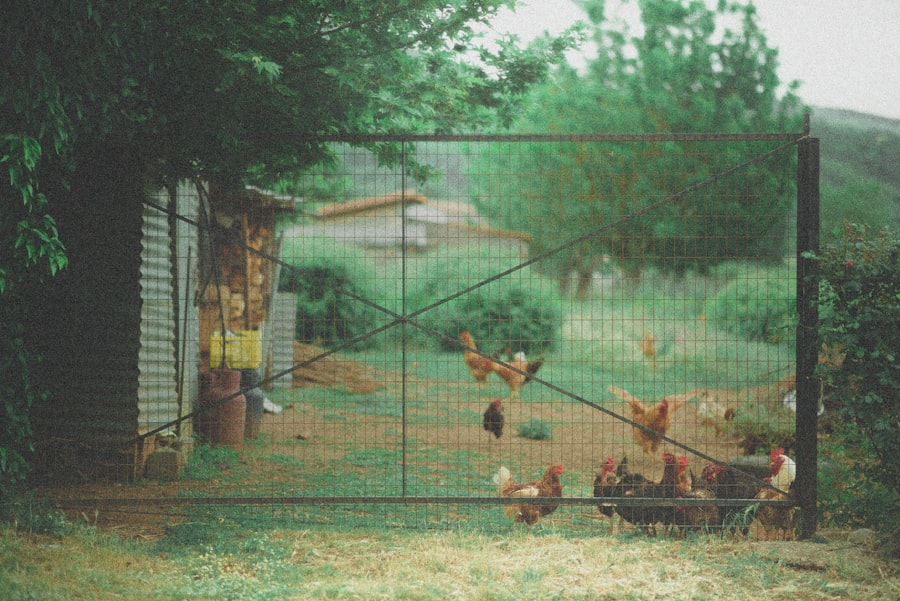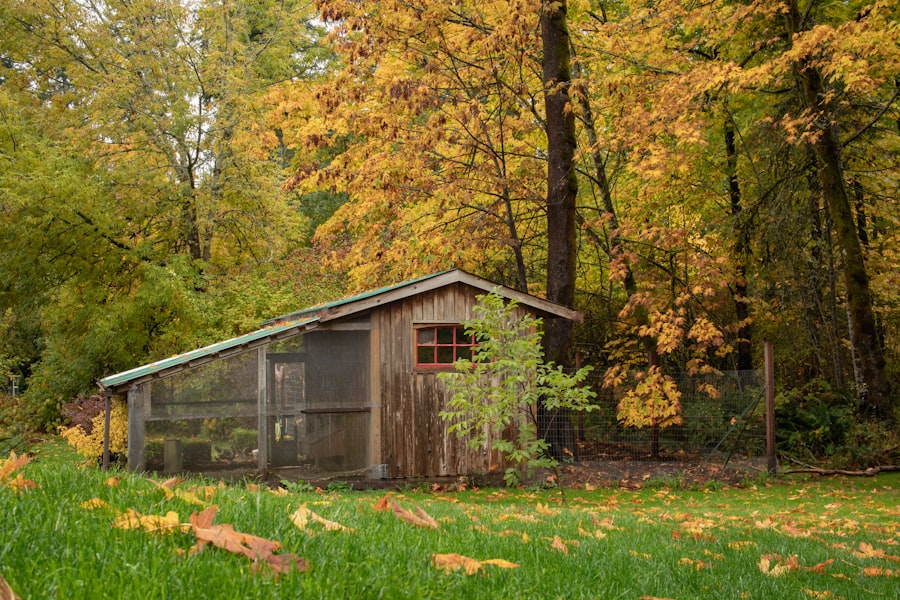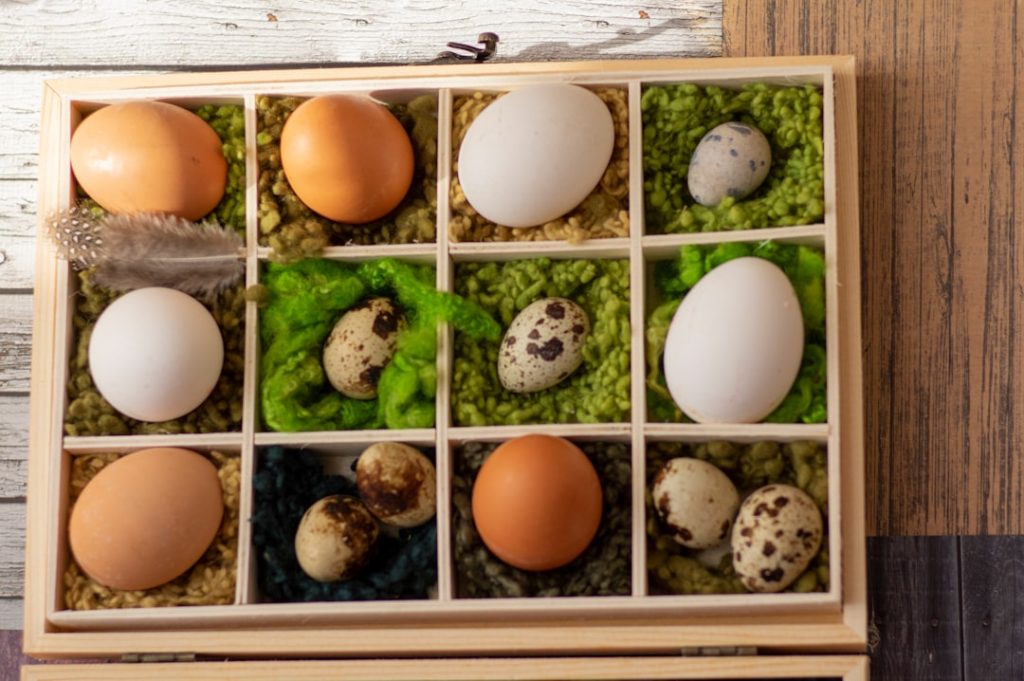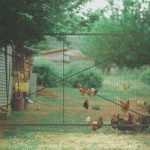Chickens are social creatures with an innate roosting instinct. Roosting is a behavior that provides chickens with a sense of safety and security by allowing them to perch above ground level, away from potential predators. In their natural habitat, chickens would seek out trees or other elevated locations for roosting during sleep.
This behavior is deeply rooted in their genetic makeup, and it is essential for chicken keepers to recognize and accommodate this natural inclination. Within a flock, chickens establish a clear social hierarchy, and the roosting order plays a significant role in their social structure. Dominant individuals typically claim the highest and most desirable roosting positions, while subordinate chickens occupy lower spots.
A thorough understanding of these social dynamics is crucial for creating an appropriate roosting environment for a chicken flock.
Table of Contents
- 1 Choosing the right location for the waterer
- 2 Providing alternative roosting spots
- 3 Using deterrents to discourage roosting on the waterer
- 4 Maintaining a clean and dry environment
- 5 Regularly checking and adjusting the waterer
- 6 Seeking professional advice if roosting behavior persists
- 7 FAQs
- 7.1 What are the reasons chickens roost on waterers?
- 7.2 How can I prevent chickens from roosting on waterers?
- 7.3 What are the potential problems of chickens roosting on waterers?
- 7.4 Are there specific breeds of chickens that are more prone to roosting on waterers?
- 7.5 Can I train my chickens to avoid roosting on waterers?
Key Takeaways
- Chickens have natural roosting behavior and prefer to perch at night
- Place the waterer in a shaded, quiet area to encourage drinking and reduce roosting
- Offer alternative roosting spots such as elevated perches or roosting bars
- Use deterrents like wire mesh or spikes to prevent chickens from roosting on the waterer
- Keep the coop clean and dry to discourage roosting and maintain chicken health
- Regularly check and adjust the waterer to ensure it remains roost-free
- Seek professional advice if roosting behavior persists despite efforts
Choosing the right location for the waterer
Considering Natural Roosting Behavior
When it comes to choosing the right location for the waterer, it is essential to consider the natural roosting behavior of chickens. Placing the waterer in an area where chickens are likely to roost can lead to unsanitary conditions, as droppings and feathers can contaminate the water. Additionally, chickens may be more likely to roost on the waterer itself, leading to further contamination.
Ideal Placement for a Clean Water Supply
Ideally, the waterer should be placed in an area that is separate from the chickens’ roosting spots. This will help to keep the water clean and free from contamination, ensuring that the chickens have access to fresh and safe drinking water at all times.
Accessibility is Key
It is also important to consider the accessibility of the waterer for the chickens, as they should be able to easily reach it without having to navigate through their roosting area.
Providing alternative roosting spots

In order to discourage chickens from roosting on the waterer, it is important to provide alternative roosting spots for them. This can be achieved by providing elevated perches or roosting bars in a separate area of the coop. By offering alternative roosting spots, chickens will be less likely to roost on the waterer, as they will have a designated area for sleeping and perching.
When providing alternative roosting spots, it is important to consider the size and number of chickens in the flock. There should be enough space for all of the chickens to comfortably roost without feeling crowded or cramped. Additionally, the roosting spots should be positioned in a way that allows for easy cleaning and maintenance, as droppings and feathers will accumulate over time.
Using deterrents to discourage roosting on the waterer
If chickens continue to roost on the waterer despite providing alternative roosting spots, it may be necessary to use deterrents to discourage this behavior. There are several methods that can be used to deter chickens from roosting on the waterer, including physical barriers, visual deterrents, and sound deterrents. Physical barriers such as wire mesh or netting can be placed over the waterer to prevent chickens from perching on it.
This will make it difficult for them to access the waterer and discourage them from roosting on it. Visual deterrents such as scarecrows or reflective surfaces can also be effective in deterring chickens from roosting on the waterer, as they will be startled by unexpected movements or reflections. Sound deterrents such as motion-activated alarms or noise-making devices can also be used to discourage chickens from roosting on the waterer.
These deterrents can startle the chickens and make them uncomfortable, leading them to seek alternative roosting spots. It is important to use deterrents in a humane and non-harmful manner, ensuring that they do not cause distress or harm to the chickens.
Maintaining a clean and dry environment
In order to prevent chickens from roosting on the waterer, it is important to maintain a clean and dry environment in the coop. Wet and dirty conditions can attract chickens to roost on the waterer, as they may seek out a dry and elevated spot to perch. Regularly cleaning and drying the coop will help to discourage this behavior and ensure that the waterer remains free from contamination.
It is important to regularly remove droppings, feathers, and other debris from the coop, as these can attract chickens to roost on the waterer. Additionally, ensuring that the coop is well-ventilated and free from moisture will help to prevent damp conditions that may encourage roosting on the waterer. Providing adequate bedding and nesting material will also help to keep the coop clean and dry, creating a comfortable environment for the chickens.
Regularly checking and adjusting the waterer

Regular Cleaning and Refilling
Regular cleaning and refilling of the waterer are essential to prevent chickens from roosting on it. This includes checking for any leaks or malfunctions that may attract chickens to roost on it.
Adjusting the Height and Positioning
Adjusting the height and positioning of the waterer can also help to discourage roosting behavior. Placing the waterer at a height that is difficult for chickens to access or perch on can help to prevent them from roosting on it.
Positioning in a Well-Lit Area
Additionally, positioning the waterer in a well-lit area that is visible to the chickens will make it less appealing as a roosting spot.
Seeking professional advice if roosting behavior persists
If despite all efforts, chickens continue to roost on the waterer, it may be necessary to seek professional advice from a veterinarian or poultry expert. Persistent roosting behavior can be a sign of underlying health or behavioral issues that need to be addressed. A professional can provide guidance on how to effectively discourage roosting on the waterer and ensure that the chickens’ needs are being met.
A veterinarian or poultry expert can also provide advice on potential health concerns related to roosting behavior, such as respiratory issues or foot injuries. They can offer recommendations for improving the overall health and well-being of the flock, as well as provide guidance on managing social dynamics within the flock. Seeking professional advice is essential for addressing persistent roosting behavior and ensuring that the chickens are able to thrive in a safe and comfortable environment.
If you’re struggling with chickens roosting on your waterer, you may want to consider building an A-frame chicken coop. This type of coop can provide a more comfortable and secure environment for your chickens, which may help discourage roosting on the waterer. For more information on A-frame chicken coops, check out this article on PoultryWizard.com.
FAQs
What are the reasons chickens roost on waterers?
Chickens may roost on waterers due to lack of proper roosting space, overcrowding, or simply out of habit.
How can I prevent chickens from roosting on waterers?
You can prevent chickens from roosting on waterers by providing adequate roosting space, ensuring the waterer is placed in a well-lit area, and using deterrents such as wire mesh or spikes.
What are the potential problems of chickens roosting on waterers?
Chickens roosting on waterers can lead to contamination of the water, increased risk of disease, and potential damage to the waterer itself.
Are there specific breeds of chickens that are more prone to roosting on waterers?
While there are no specific breeds that are more prone to roosting on waterers, overcrowding and lack of roosting space can contribute to this behavior in any breed of chicken.
Can I train my chickens to avoid roosting on waterers?
Yes, you can train your chickens to avoid roosting on waterers by providing alternative roosting spaces, using deterrents, and consistently redirecting them away from the waterer.
Meet Walter, the feathered-friend fanatic of Florida! Nestled in the sunshine state, Walter struts through life with his feathered companions, clucking his way to happiness. With a coop that’s fancier than a five-star hotel, he’s the Don Juan of the chicken world. When he’s not teaching his hens to do the cha-cha, you’ll find him in a heated debate with his prized rooster, Sir Clucks-a-Lot. Walter’s poultry passion is no yolk; he’s the sunny-side-up guy you never knew you needed in your flock of friends!







